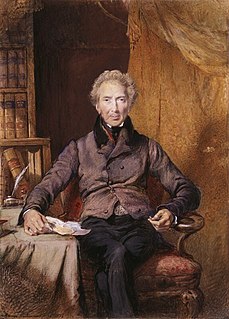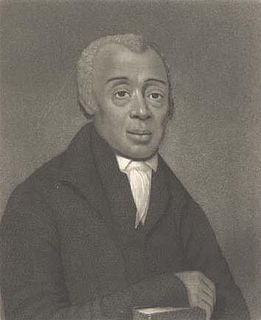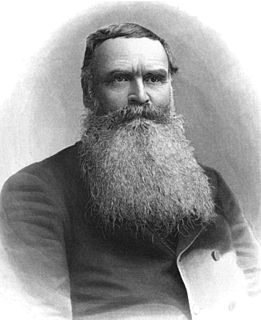A Quote by Francis Atterbury
Modesty teaches us to speak of the ancients with respect, especially when we are not very familiar with their works. Newton, who knew them practically by heart, had the greatest respect for them, and considered them to be men of genius and superior intelligence who had carried their discoveries in every field much further than we today suspect, judging from what remains of their writings. More ancient writings have been lost than have been preserved, and perhaps our new discoveries are of less value than those that we have lost.
Quote Topics
Ancient
Been
Carried
Considered
Discoveries
Every
Familiar
Field
Further
Genius
Greatest
Had
Heart
Intelligence
Judging
Knew
Less
Lost
Men
Modesty
More
Much
New
New Discoveries
Newton
Our
Perhaps
Practically
Preserved
Remains
Respect
Speak
Superior
Superior Intelligence
Suspect
Teaches
Than
Them
Those
Today
Us
Value
Very
Works
Related Quotes
...It would be possible to make much more progress than has been made if the NCI knew its job better, knew how to make discoveries...The NCI really does not know how to make discoveries....So long as the NCI is not willing to follow up ideas that seem good to people who have had experience making discoveries, the work of the NCI is going to be pedestrian.
So how do we solve this ancient problem? How can we not just tolerate someone who believes differently than we do, but actually respect them for those beliefs? Because nothing less than that will do. It can?t. Simply tolerating someone who believes differently than we do isn?t enough. ?Accepting? them isn?t enough. Having true and abiding peace with them means loving them. And that means respecting them. Because love without respect isn?t real love at all. It?s at best condescending patronization.
Very few men can speak of Nature, for instance, with any truth. They overstep her modesty, somehow or other, and confer no favor.They do not speak a good word for her. Most cry better than they speak, and you can get more nature out of them by pinching than by addressing them. The surliness with which the woodchopper speaks of his woods, handling them as indifferently as his axe, is better than the mealy-mouthed enthusiasm of the lover of nature. Better that the primrose by the river's brim be a yellow primrose, and nothing more, than that it be something less.
We ought never to be afraid to repeat an ancient truth, when we feel that we can make it more striking by a neater turn, or bring it alongside of another truth, which may make it clearer, and thereby accumulate evidence. It belongs to the inventive faculty to see clearly the relative state of things, and to be able to place them in connection; but the discoveries of ages gone by belong less to their first authors than to those who make them practically useful to the world.
The people in Coming of Age were far less curmudgeonly than you would think. The greater percentage said that without the young we'd be lost. One woman, a former Southern belle, now 87, a philanthropist, says, "Well, these young, their history's been stolen from them. And what have we done to make them respect us?"
When people are too present, too familiar or too in our face, something happens to us psychologically. We begin to tune them out, we begin to get sick of them, we begin to know them so well and become so familiar with who they are that we loose a bit of respect for them. You pass a certain threshold with the fact that you're too present in their lives, too much in their face and once that threshold is passed you're never going to repair it they have lost a certain respect for you.
Superficial knowledge ... is hurtful to those who possess true genius; for it necessarily draws them away from their main object, wastes their industry over details and subjects foreign to their needs and natural talent, and lastly does not serve, as they flatter themselves, to prove the breadth of their mind. In all ages there have been men of very moderate intelligence who knew much, and so on the contrary, men of the highest intelligence who knew very little. Ignorance is not lack of intelligence, nor knowledge a proof of genius.
The evidence for our New Testament writings is ever so much greater than the evidence for many writings of classical authors, the authenticity of which no one dreams of questioning. And if the New Testament were a collection of secular writings, their authenticity would generally be regarded as beyond all doubt.
After the birth of printing books became widespread. Hence everyone throughout Europe devoted himself to the study of literature... Every year, especially since 1563, the number of writings published in every field is greater than all those produced in the past thousand years. Through them there has today been created a new theology and a new jurisprudence; the Paracelsians have created medicine anew and the Copernicans have created astronomy anew. I really believe that at last the world is alive, indeed seething, and that the stimuli of these remarkable conjunctions did not act in vain.
The Bible is a collection of writings by lots of different people written over maybe a thousand years, from a number of centuries before Jesus to a century after Jesus. I often like to refer to it as "the Scriptures" to make that point about it being lots of writings that were originally separate. What these writings have in common is that "the Old Testament" is writings that grabbed the Jewish people; writings that convinced them that they were God's word to them. And "the New Testament" is writings that grabbed people who believed in Jesus in the same way.
We are so vain as to set the highest value upon those things to which nature has assigned the lowest place. What can be more coarse and rude in the mind than the precious metals, or more slavish and dirty than the people that dig and work them? And yet they defile our minds more than our bodies, and make the possessor fouler than the artificer of them. Rich men, in fine, are only the greater slaves.
I learned early on that one of the secrets to campus leadership was the simplest thing of all: speak to people coming down the sidewalk before they speak to you. I did that in college. I did it when I carried my papers. I would always look ahead and speak to the person coming toward me. If I knew them, I would call them by name, but even if I didn't I would still speak to them. Before long, I probably knew more students than anybody in the university, and they recognized me and considered me their friend.



































